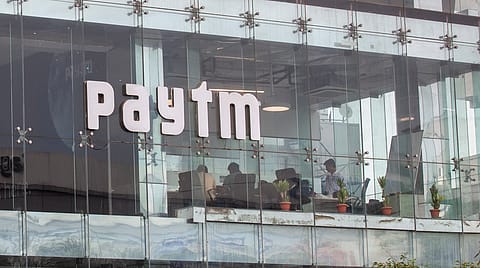Paytm tanks 23% on listing, valuation crashes to $14 bn from $20 bn
Foreign brokerage Macquarie expects price to fall 44% to ₹1,200.

It was a dismal debut for One97 Communications, the parent company of digital payments platform Paytm, which got listed at ₹1,955, a 9% discount to its IPO price of ₹2,150. In fact, the stock hit a low of ₹1,655, down 23% from its issue price.
The poor response to the biggest-ever public float was not exactly surprising given the lukewarm response to the issue, as the non-institutional portion remained under-subscribed with the IPO managing just 1.89 times more demand than the shares on offer. In fact, the grey market premium was already indicating that the stock would be listed at a discount.
The IPO comprised a fresh issue worth ₹8,300 crore and an offer-for-sale by existing shareholders worth ₹10,000 crore. At the upper end, the company was valued at $20 billion (about ₹1.5 lakh crore). As of 10.47 AM, Paytm was valued at $14 billion (₹1.04 lakh crore) on the BSE.
Foreign brokerage house, Macquarie, downgraded the stock to 'underperform', saying Paytm's business model lacked focus and direction and the company was a 'cash guzzler'.
Paytm’s last major funding round was in 2017 when it was valued at $8 billion. The valuation was later bumped up to $16 billion when it raised $1 billion in 2019.
During a pre-IPO media interaction, founder Vijay Shekhar Sharma had said the valuation was “rational and fair”. Sharma also commented that the valuation would help many people participate in its much-hyped IPO. “We want as many people (as possible) to make money, considering we could see there is a huge demand ahead of us,” he had said.
But clearly that doesn’t seem to be the case for now.